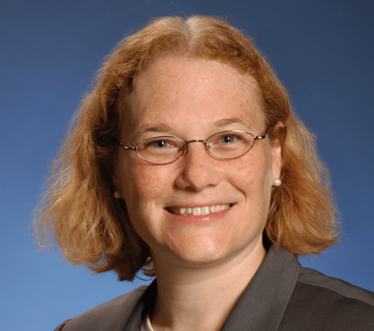Clinical Data Star
Sitting Down With... Elisa Cascade is President, Data Solutions at DrugDev, Philadelphia, USA.

When did you decide to focus your career on healthcare data?
When I started my studies at the University of Michigan, I set up my schedule with an eye towards taking all of the pre-requisite classes for medical school, but I was so interested in economics that I ended up majoring in it. Upon graduation as a pre-med economics major, I decided to look for a job as opposed to going to med school straight away. Unsurprisingly, healthcare consulting was a perfect fit for both of my interests and after a few years, I decided that I enjoyed the analytics around healthcare more than actually practicing healthcare. I then continued my career and education in the direction of data and analytics in healthcare, specifically in the medical technology space.
What moments in your career have made you the most proud?
One was my involvement in building and delivering a patient community called MediGuard, which provided safety alerts and updates on medicines. Over a span of 3 years, we grew from a pilot concept at Quintiles to delivering drug safety information to nearly 3 million patients. I was very proud of the direct benefit we were providing to patients by making them aware of potential drug-drug interactions.
Later, I moved to the physician community space by joining DrugDev. When I was first brought into DrugDev in 2013, we had just started hosting the Investigator Databank (a global collaboration platform for sharing investigator information), which at that point involved just three pharmaceutical companies. Today, this has grown to over 12 companies actively sharing data on our platform, both in the Investigator Databank and now in TransCelerate’s Investigator Registry. When we started this journey around 4 years ago, companies seemed to be afraid of losing a competitive advantage in the area of study planning and site identification, but today we have yet to find a company that is not interested in data sharing.
How has clinical trial recruitment changed over the years?
With the increase in protocol complexity and more niche products and indications, finding eligible clinical trial subjects has required access to more data for evidence-based planning and decisions. When I first started my career, while data and analytics were commonly used on the commercial side of the business, industry wasn’t really using data in clinical trial delivery. Today, companies rely heavily on healthcare data to select countries, estimate enrolment, and find the right sites and patients.
When we first started MediGuard in 2008, the idea of working directly with patients for clinical research resided primarily in the innovation department of pharmaceutical companies and contract research organizations. Today, the idea of patient recruitment support has become standard for clinical trial delivery, but I feel that more work is still needed to make it easier for patients to participate in clinical trials. For example, many patients still do not even know anything about how to get involved with a clinical trial…
You are one of the few women on our 2017 Power List…. Do you think there is a problem with women being recognized for their role in the industry?
I was very honoured to be named on the Power List! But yes, many women aren’t recognized as leaders and do not advance into leadership roles. I think it comes down to personality and behavioral differences between men and women. It has been widely reported that women give themselves less credit and often receive less recognition for their accomplishments in comparison to men. They also feel the need to be 100 percent qualified before applying for a new position, whereas men will often go after a job they are only 60 percent qualified for – and assume they’ll learn the rest on the job. It comes down to confidence.
What can be done to better support women in industry?
It is critically important for women to support one another and to encourage greater self-confidence about their accomplishments. Women need career path encouragement, a circle of mentors, a sponsor, networking opportunities, and a great support network. I find this is true not only for women who are just starting their career, but also experienced women, including myself, who also benefit from a peer’s reassurance about their own abilities.
We seem to be heading in the right direction with schools focusing on STEM programs for girls, and companies offering women leadership programs and mentoring circles, but we can still do a lot more to remove barriers and support women and their career advancement. Not only is it the right thing to do, but it is also the profitable thing to do – McKinsey reports that companies with a female CEO or at least three women on the board or in the C-suite perform better than those without.
Any final thoughts?
Rolling off of topic of women in business, I would just like to add that I couldn’t have accomplished nearly as much without the love and support of my husband and twin boys who are now aged 16. They truly motivate me to work hard, play hard every day.
Chief Product Officer, Advarra



















